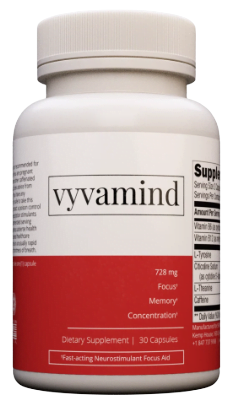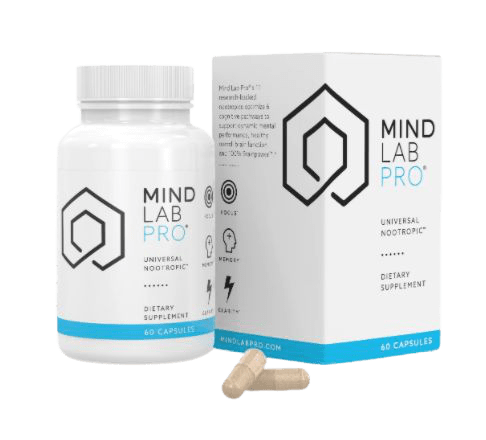
The best dopamine supplements to improve cognition and well-being. From individual ingredients to FDA-approved stacks, we looked at the best natural dopamine supplements that increase dopamine production and influence its release in the brain.
Do you want to be more optimistic, motivated, and happier?
The solution you are looking for might be increasing dopamine.
Table of Contents
It’s not unnatural to increase dopamine through high dopamine producing activities, or even dopamine supplements. Dopamine, a neurotransmitter and chemical release in the brain, is a neurological process that we can influence naturally with little to no known side effects.
Making sure to maintain an increased level of dopamine – called the “motivational hormone” – is one of the easiest ways to improve our overall mental well-being, cognitive capacity, and ability to handle day-to-day tasks effectively.
And while we can go out of our way to exercise more, eat healthier, sleep better, and be more outgoing, we can also take natural dopamine supplements and nootropics that help encourage this process.
After all, supplements, while optional, are there to help.
The Benefits of Dopamine
Dopamine is a neurotransmitter that plays an important role in the brain’s reward and pleasure system. It involves many physiological processes, including motor control, motivation, learning, memory formation, and reward-seeking behavior.
Dopamine has been linked to improved cognitive performance, increased attention span, enhanced creativity and socialization, and improved mood and motivation.
At the most basic level, dopamine helps regulate our movement. We may experience difficulty with coordination or fine motor skills when dopamine levels are low. Low dopamine levels can also lead to decreased motivation and energy levels.
On the other hand, when dopamine levels are high, we may feel more energetic and motivated to take on tasks.
Dopamine also affects our ability to learn new information and form memories. Studies have shown that people with higher levels of dopamine tend to perform better on memory recall tests than those with lower levels of dopamine. Additionally, research suggests that increasing dopamine levels can improve focus and concentration while decreasing distractibility.(1)
In addition to its effects on cognition and movement, dopamine has been linked to positive emotional states such as happiness and pleasure. This is because it helps regulate our reward system; when we experience something pleasurable or rewarding (such as eating a delicious meal), our brains release dopamine, giving us a feeling of satisfaction or pleasure.
This is why activities like gambling can be so addictive; they trigger the release of large amounts of dopamine which creates a powerful feeling of euphoria or excitement in the brain.
High Levels of Dopamine
High or low dopamine levels can have various effects on the body. When dopamine levels are too high, it can lead to overdrive and feelings of euphoria.
On the other hand, when dopamine levels are too low, it can lead to depression and difficulty concentrating.
The level of dopamine transmission increases in response to any type of reward or strongly addictive drugs. Dopamine is also involved in regulating hormones such as prolactin and oxytocin. Drugs like cocaine and amphetamines can mimic the effects of dopamine by increasing its concentration in the brain. This can lead to addiction as the brain becomes dependent on these drugs for pleasure-seeking behavior.
The synaptic effects of dopamine breakdown have been linked to schizophrenia and bipolar disorder. Studies have shown that people with these disorders often have elevated homocysteine (HCY) levels which may be related to decreased dopamine activity in certain areas of the brain.(2) Additionally, working memory deficits are commonly seen in those with schizophrenia, which may be due to impaired dopamine signaling pathways.
Understanding how high or low dopamine levels affect our bodies is essential for treating various neurological disorders and preventing drug abuse and addiction.
The Top 9 Supplements to Increase Dopamine
If you’re interested in increasing your dopamine levels naturally, you might consider looking into a dopamine supplement.
However, before using a nootropic supplement, you should know a few things. For starters, you should know about the ingredients. Also, you should be aware of the side effects of the ingredients. If you have any concerns, consult a healthcare professional before using any supplements.
1. Vyvamind

Vyvamind (NSV-313) is an over-the-counter brain supplement with dopamine-boosting ingredients that work similarly to prescription ADHD medication but without harmful side effects or addiction risks. It works as a natural stimulant in the brain, increasing mental energy, improving focus, and improving memory. The best part is that it works quickly, with noticeable results within 45 minutes of taking it.
This supplement’s natural ingredients are clinically proven to help cognitive function. Choline, a crucial nutrient, plays a key role in producing acetylcholine, a neurotransmitter essential to learning, memory, and concentration. It is also known to boost mood and reduce anxiety.
Vyvamind has been shown to work quickly in reducing brain fog and boosting attention. It contains a potent blend of 6 ingredients, including:
- Vitamin B6 (2.5 mg)
- Vitamin B12 (50 mcg)
- L-Tyrosine (300 mg)
- CDP Choline (200 mg)
- L-Theanine (150 mg)
- Caffeine Anhydrous (75 mg)
L-Tyrosine and caffeine boost your energy levels and improve your focus. It also contains powerful antioxidants that help protect the brain from damage. It also boosts levels of dopamine and norepinephrine, which are essential for cognitive function and motivation.
2. Mind Lab Pro

Mind Lab Pro is a “universal” nootropic proven to improve cognitive performance and support the production and release of dopamine.
Containing a stack of 11 powerful nootropic ingredients, Mind Lab Pro is an all-in-one nootropic blend for optimizing brain performance, from sharpened focus, memory processing, and detoxification to brain cell health and problem-solving.
Similar to the other supplements we have listed, Mind Lab Pro – manufactured by Opti Nutra – is a natural product, vegan and gluten-free, with no additives or preservatives.
Mind Lab Pro contains the following ingredients:
- Vitamin B6, 2,5 mg
- Vitamin B9, 100 mcg
- Vitamin B12, 7.5 mcg
- L-theanine, 100 mg
- Citicoline, 250 mg
- Bacopa monnieri, 150 mg
- Organic lion’s mane mushroom, 500 mg
- Phosphatidylserine, 100 mg
- N-acetyl L-tyrosine, 175 mg
- Rhodiola rosea, 50 mg
- Maritime pine bark extract, 75 mg
Vitamin B6, Vitamin B12, L-Tyrosine, and L-Theanine alone offer multiple benefits for our cognition and, subsequently, the natural dopamine production in our brains.
Explained simply, nootropics, like Mind Lab Pro, are supplements that contain multiple premium ingredients that provide various brain benefits. For many, these are convenient, all-in-ones solutions for improving overall health and day-to-day performance.
3. L-Tyrosine
L-Tyrosine – made by another amino acid, phenylalanine – is responsible for producing and supporting multiple neurotransmitters in addition to dopamine. These include norepinephrine and epinephrine.
Yet, despite being a non-essential amino acid, the importance of L-Tyrosine is understated. L-Tyrosine is available as a powder and capsule supplement, and it is highly popular among weightlifters and athletes for its ability to repair muscle tissue and quicken recovery.
But it isn’t just for weightlifters and athletes. L-Tyrosine’s benefits are widely recognized for increasing dopamine production.(3) And, of course, without a “reserve” of dopamine for our brains to release, our cognitive ability and overall quality of mood would suffer.
4. L-Theanine
Did you know that dopamine production is helped by eating high-protein foods?
Amino acids, compounds found in protein, are direct dopamine producers, and one of these crucial amino acids is L-Theanine.
A handful of studies show that L-Theanine contributes to dopamine production.(4) Not only that, but it can improve neurotransmitters (that send signals to your brain) – one of which is dopamine.
L-Theanine is available as a supplement and is used by many as a natural dopamine supplement to improve brain functionality and general mood happiness.
5. Panax Ginseng
Panax ginseng has multiple health benefits, from improving the immune system and cardiovascular systems to promoting better cognition and a more positive outlook.
For this reason, there is widespread support among scientists and psychologists that Panax ginseng does contribute to dopamine production and its natural process in the brain.(5)
It has also been a trusted traditional medicine in China and Korea for centuries, where it has been used to treat inflammation, fatigue, and weak immune systems.
Panax ginseng root extract is taken orally as a powder or in capsule form and is 100% natural as a dopamine supplement and a medicinal treatment.
6. Ginkgo Biloba
Ginkgo biloba is a tree that grows in China. The benefits of taking Ginkgo biloba include increasing blood circulation, treating inflammation, reducing anxiety, and improving brain function and overall mental well-being.(6)
This is why Ginkgo biloba is widely used as a nootropic.
The benefits of Ginkgo biloba also extend to vision support, treating depression, and curing headaches. Multiple claims that ginkgo includes powerful antioxidants, which fight free radicals in our blood cells.
As described, Ginkgo biloba has numerous benefits that contribute to its status as a “universal” supplement that can improve cognition and bodily functions at the same time.
It is widely available and consumed orally as a mixable powder or tablet/capsule.
7. Mucuna Pruriens
Mucuna pruriens is another natural supplement reported to increase dopamine production because its high-protein content contains multiple amino acids.(7)
The popular supplement, extracted from the tropical velvet bean plant native to Africa and Asia, provides numerous health benefits, such as curing anxiety, treating infertility in males (aphrodisiac qualities), and improving general brain health.
Mostly taken as a stress reliever or anxiety fix, mucuna pruriens has the ability to improve cognition, hence its relation to supporting dopamine and its natural involvement as part of the brain’s reward system.
8. Vitamin B6 and Vitamin B12
Vitamin B6 and Vitamin B12 are readily available supplements that contribute to the production of both dopamine and serotonin.(8)
Serotonin, called the “happy hormone,” is related to dopamine as a neurotransmitter and chemical release in the brain as a direct response to a positive emotion or thought.
As a result, deficiencies of either vitamin B6 or vitamin B12 can lead to low self-esteem, irritability, stress, a drop in appetite, a lack of motivation, or disrupted sleep.
Vitamin B6 and vitamin B16 can be directly consumed from various foods, including vegetables and protein-rich beans, meat, and fish.
However, many opt to take vitamin B6 and vitamin B16 to maintain and manage their general well-being as an effective and entirely natural dopamine supplement and serotonin supplement.
9. Magnesium
Magnesium is one of the most popular supplements you can buy, and its healthful benefits have the science to back them up.
Magnesium is a mineral proven to benefit brain health and fix common ailments, specifically chronic headaches, and migraines.
While Magnesium is found throughout the body, an increase in Magnesium through dietary means or supplementary means is reported to improve general health significantly. This includes treating PMS, lowering blood pressure, and reducing inflammation.
A natural result of Magnesium’s ability to cure headaches is for the brain to function optimally. When we experience headaches and migraines, stress and toxins cloud the brain (brain fog), posing a threat to the release of dopamine and our capacity to perceive it.
Foods That Boost Dopamine Production
Dopamine cannot be eaten, as is it not found in any food source as something that can be directly consumed and absorbed by the body.
However, just like the above supplement, there are foods that we can eat to boost dopamine production and support its natural process as a neurotransmitter.
Mucuna pruriens, L-Tyrosine, and L-Theanine have been extracted from food themselves. L-Tyrosine and l-Theanine are found in high-protein foods, while Mucuna pruriens is taken from the velvet bean, a legume native to various tropical countries.
L-Theanine is also found in green tea. Magnesium, as another example, can be consumed in dark chocolate.
Numerous studies have also shown that a large part of dopamine is produced in the gut.(9) To support this, probiotics can be particularly useful for improving gut health while keeping the processes of the gut functioning optimally.
Both probiotic drinks and yogurts can therefore be consumed regularly to improve dopamine production and increase dopamine levels significantly.
Conclusion
Dopamine is key to maintaining our motivation levels, happiness, and general mental well-being. It aids cognitive ability, which can determine how focused, alert, and productive we are at work and how well we perform everyday tasks.
Taking dopamine supplements, for these reasons, offers a simple solution to increasing dopamine production and supporting its natural release in the brain.
While supplements are always optional, natural dopamine supplements are safe to take, allowing us to enjoy the many benefits of dopamine and avoid the symptoms of dopamine deficiency in a convenient and organic way.

- Bayram, Ece et al. “Dopamine effects on memory load and distraction during visuospatial working memory in cognitively normal Parkinson’s disease.” Neuropsychology, development, and cognition. Section B, Aging, neuropsychology and cognition vol. 28,6 (2021): 812-828. doi:10.1080/13825585.2020.1828804↩
- Moustafa, Ahmed A et al. “Homocysteine levels in schizophrenia and affective disorders-focus on cognition.” Frontiers in behavioral neuroscience vol. 8 343. 6 Oct. 2014, doi:10.3389/fnbeh.2014.00343↩
- Jongkees, Bryant J et al. “Effect of tyrosine supplementation on clinical and healthy populations under stress or cognitive demands–A review.” Journal of psychiatric research vol. 70 (2015): 50-7. doi:10.1016/j.jpsychires.2015.08.014↩
- Nathan, Pradeep J et al. “The neuropharmacology of L-theanine(N-ethyl-L-glutamine): a possible neuroprotective and cognitive enhancing agent.” Journal of herbal pharmacotherapy vol. 6,2 (2006): 21-30.↩
- Kim, Sang Eun et al. “Effect of ginseng saponins on enhanced dopaminergic transmission and locomotor hyperactivity induced by nicotine.” Neuropsychopharmacology : official publication of the American College of Neuropsychopharmacology vol. 31,8 (2006): 1714-21. doi:10.1038/sj.npp.1300945↩
- Field, B H, and R Vadnal. “Ginkgo biloba and Memory: An Overview.” Nutritional neuroscience vol. 1,4 (1998): 255-67. doi:10.1080/1028415X.1998.11747236↩
- Rana, Digvijay G, and Varsha J Galani. “Dopamine mediated antidepressant effect of Mucuna pruriens seeds in various experimental models of depression.” Ayu vol. 35,1 (2014): 90-7. doi:10.4103/0974-8520.141949↩
- Sato, Kohji. “Why is vitamin B6 effective in alleviating the symptoms of autism?.” Medical hypotheses vol. 115 (2018): 103-106. doi:10.1016/j.mehy.2018.04.007↩
- Hamamah, Sevag et al. “Role of Microbiota-Gut-Brain Axis in Regulating Dopaminergic Signaling.” Biomedicines vol. 10,2 436. 13 Feb. 2022, doi:10.3390/biomedicines10020436↩
